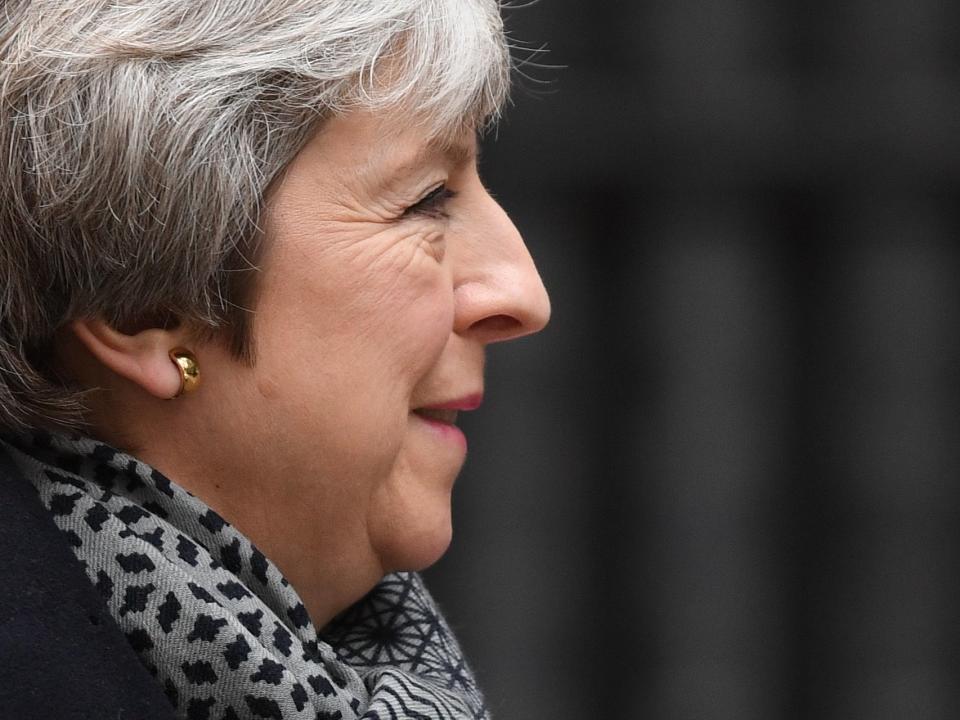This obscure law could save us from Brexit
Theresa May’s Brexit deal has been rejected by the House of Commons, and the EU will not alter it in a way which will change that parliamentary arithmetic. The Commons has also made it clear that it will effectively veto a no-deal crash out. The no confidence motion tabled by Jeremy Corbyn, among others, will most likely be safely won by the prime minister thanks to her support from the DUP. The EU will not grant anything more than a short extension to the two-year deadline of the end of March applicable to the UK’s notice of intended departure from the EU under Article 50 of the Lisbon Treaty – unless there is a significant intervening event, such as a general election or a Final Say referendum.
Another referendum is the right answer; a decision by referendum should not be reversed without the authority of the people. If the prime minister thinks her deal is so good, there is no logical reason why she should not put it to a popular vote against the option of remaining. Indeed, this concept of a second referendum once the proposed exit terms had been negotiated was advocated by David Davis and Jacob Rees-Mogg before they found it inconvenient to do so.
But a Final Say referendum can only happen with the cooperation of the government to put through the necessary legislation, and seek an appropriate extension to the Article 50 deadline. The Commons has no mechanism to impose it. And the prime minister has set her face against a People's Vote, continuing to insist on the false binary choice of “her deal or no deal” – a deeply flawed game of chicken on such a monumental issue.
So does the Commons have an escape route? Enter stage left Houdini, in the unlikely guise of a Humble Address.
The Humble Address
Not rediscovered until recently as a substantive assertion of parliamentary sovereignty (as against its traditional ceremonial role), the "Humble Address" is a mechanism under which a House of Parliament can make its desires and opinions known to the Crown. It cannot, however, be moved in relation to any legislation.
Addresses have – in the words of Erskine May, the authoritative guide to Parliamentary procedure – historically comprised “every matter of foreign or domestic policy”. The mechanism has recently been used with dramatic effect, first to compel the release of economic assessments relating to Brexit and then to force the publication of the attorney-general’s full legal advice on the Irish backstop. In the latter case, the speaker accepted the proposition that for the government to refuse to comply with a Humble Address would be a contempt of parliament, at which point the government caved in.
The Escape Route
The European Court of Justice has recently ruled that a member state which has given an Article 50 notice may unilaterally withdraw it, so long as such withdrawal is irrevocable and unconditional, and is effected in a way which is compatible with that member state’s constitutional requirements. In the case of the UK which has no written constitution, the UK Supreme Court held that this means the authority of parliament, which is why an act of parliament was needed to authorise the UK’s Article 50 Notice.
So given that the Commons cannot compel the better option of a People’s Vote, its only available method of preventing a no-deal crash out is to compel the withdrawal of the UK’s Article 50 Notice.
And, on the basis of Erskine May, it can do so by a Humble Address, and it would be a contempt of parliament if the government failed to implement it.
In the public interest, I provide a draft: "That an humble address be presented to Her Majesty, that she will be graciously pleased to procure that her government irrevocably and unconditionally revokes the Notice it gave under Article 50(2) of the Treaty of the European Union pursuant to the authority conferred upon her government by the European Union (Notice of Withdrawal) Act 2017."
Philip Goldenberg was a long-standing adviser to the Liberal Democrats and was the principal author of the 2010 coalition government's ‘machinery of government agreement’.

 Yahoo News
Yahoo News 

